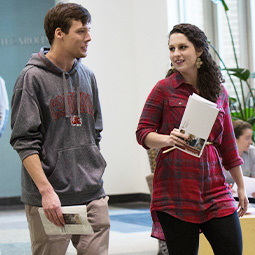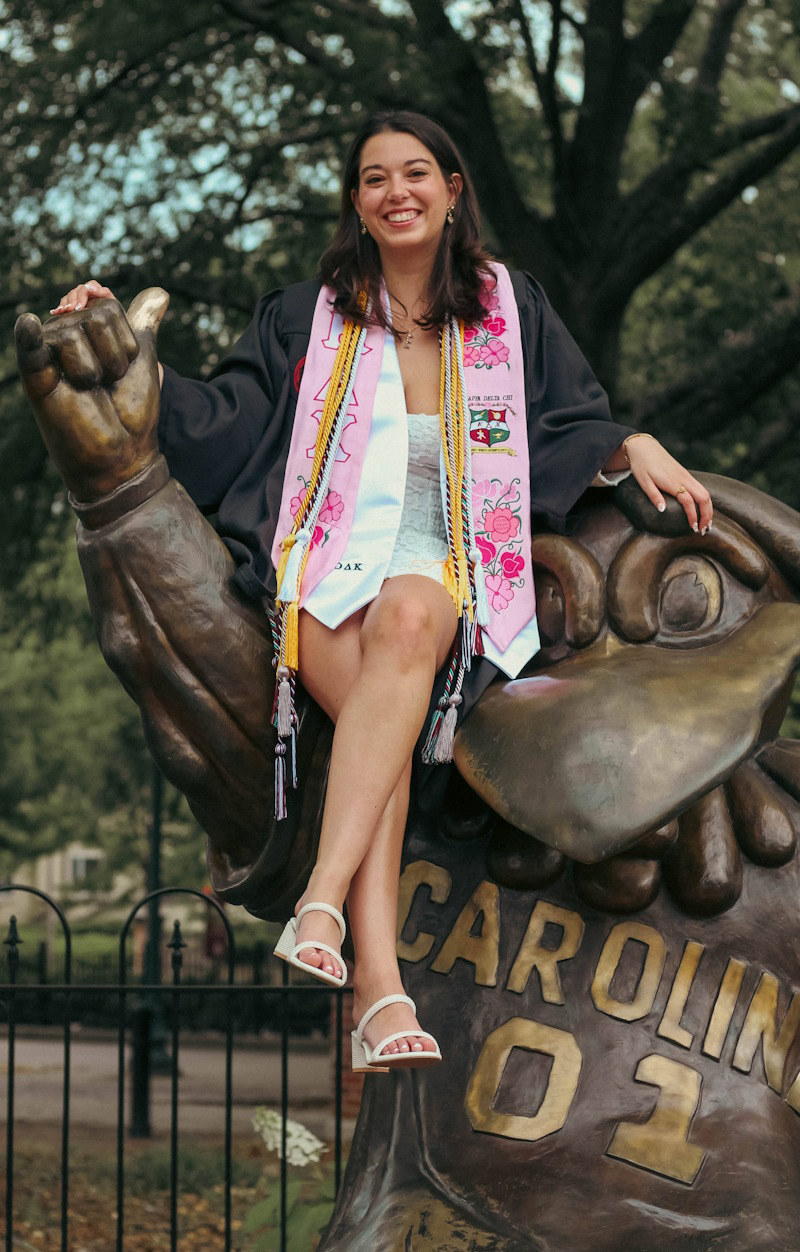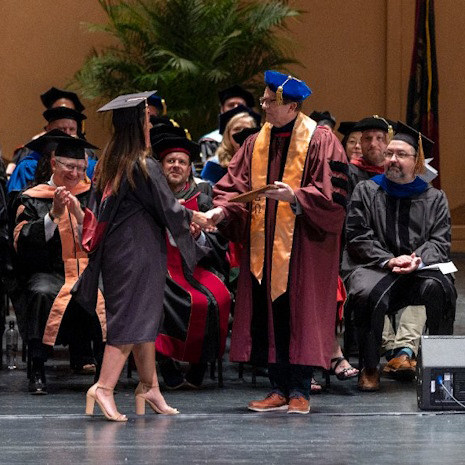
Study Public Health
The Bachelor of Arts (B.A.) curriculum is for students who want to apply the degree to social and behavioral sciences, while the Bachelor of Science (B.S.) is for students who are interested in a broad-based natural science.
May 10, 2024 | Erin Bluvas, bluvase@sc.edu
With parents from Cuba and Colombia, Emily Barros had an advanced worldview growing up – despite being born and raised in one place (Charleston) until the age of 18. When college applications season began, Barros thought she was dead set on attending a certain university in the upstate. But then she stepped on USC’s campus and instantly fell in love.

“I had never realized how much greenspace USC has, especially within our lovely horseshoe,” says Barros, who was already a lifelong Gamecocks fan thanks to her uncle’s enthusiasm for the baseball team. “The Honors College was another major draw towards attending USC as I could still have the feel of a small school while attending a large university. And I got to have the vibe of city life while also somehow having a small college-town feel.”
Her passion for public health came from family as well. Barros’ older cousin had earned bachelor’s and master’s degree in the field before working with tuberculosis patients in Peru through Partners in Health. She then went on to medical school – a path that Barros plans to pursue as well.
“I have always had a deep-seated interest in health care and giving back to my community, and public health seemed like the perfect fit,” she says. “Access to health care is a major issue within our country, and I felt like a degree in public health would make me much more equipped to try and tackle this issue.”
Barros began giving back the moment she arrived on campus. For two years, she worked as a research assistant in the College of Pharmacy – distributing COVID-19 tests to the campus community. It was her first taste of public health in action, and she was hooked.
Freshman year also introduced her to clinical associate professor Kara Montgomery, who would remain an important mentor and whose University 101 course inspired Barros to become a peer leader – ultimately teaching nearly 60 students across three classes by the time she reached her senior year.
“Dr. Montgomery has made me believe that I am enough. As a woman, and as a minority, I can sometimes feel the effects of imposter syndrome,” Barros says. “She always has been there to remind me of how capable and deserving I am to be, and for that, I am forever grateful. To have a mentor who believes in you, especially at such a large flagship institution like USC, means the entire world to me.”
Over the past four years, Barros’ many activities have included serving as president for USC’s Cultural Greek Council, as mentor in the multicultural assistance peer program, and in multiple leadership roles for her sorority, Kappa Delta Chi, which is dedicated to the professional development of Latina women in higher education. She put her Spanish language skills to good use during her Public Health Senior Capstone Course when she spent 50+ hours as a medical interpreter at the Good Samaritan Clinic. Additional experiences include an internship in a pediatric cancer research lab at Wake Forest University School of Medicine, attendance at the annual Healthcare Summit through support from the Hispanic Scholarship Fund, and selection into the Student Mentors for Minorities in Medicine program at the Medical University of South Carolina (MUSC).
“My experience at USC has been the most rewarding college experience I could have ever asked for,” Barros says. “I have had the privilege to be involved in so many engaging organizations and watch myself grow as a leader. My freshman self could have never imagined what I was able to accomplish during my time here.”
Barros graduates this month with Leadership Distinction in Professional and Civic Engagement. She is also the recipient of USC’s Outstanding Senior Award, President’s Award and Wilson-Kibler Bicentennial Award. She will spend the summer as a fellow in the Diversity in Addiction Training Program at MUSC. Barros will focus on clinical research related to tobacco use and plans to obtain her medical Spanish interpreter’s license.
“I want to provide Hispanic and Latino patients with a comforting health care experience where they truly feel heard and seen,” she says.
Barros plans to volunteer at a free health clinic in Charleston during her gap year. She will also spend a few months of research in a pediatric oncology lab in Barcelona before attending medical school back in the states.
“I am very passionate about education and its intersection with medicine,” Barros says. “Because of this, I plan to work in an academic hospital and would love to direct a residency or fellowship program one day in the future.”

The Bachelor of Arts (B.A.) curriculum is for students who want to apply the degree to social and behavioral sciences, while the Bachelor of Science (B.S.) is for students who are interested in a broad-based natural science.

The Arnold School is proud of our 2024 graduates, who will go on to change the world locally and globally. Learn about some of the other outstanding individuals who completed one of our 34 programs this year.